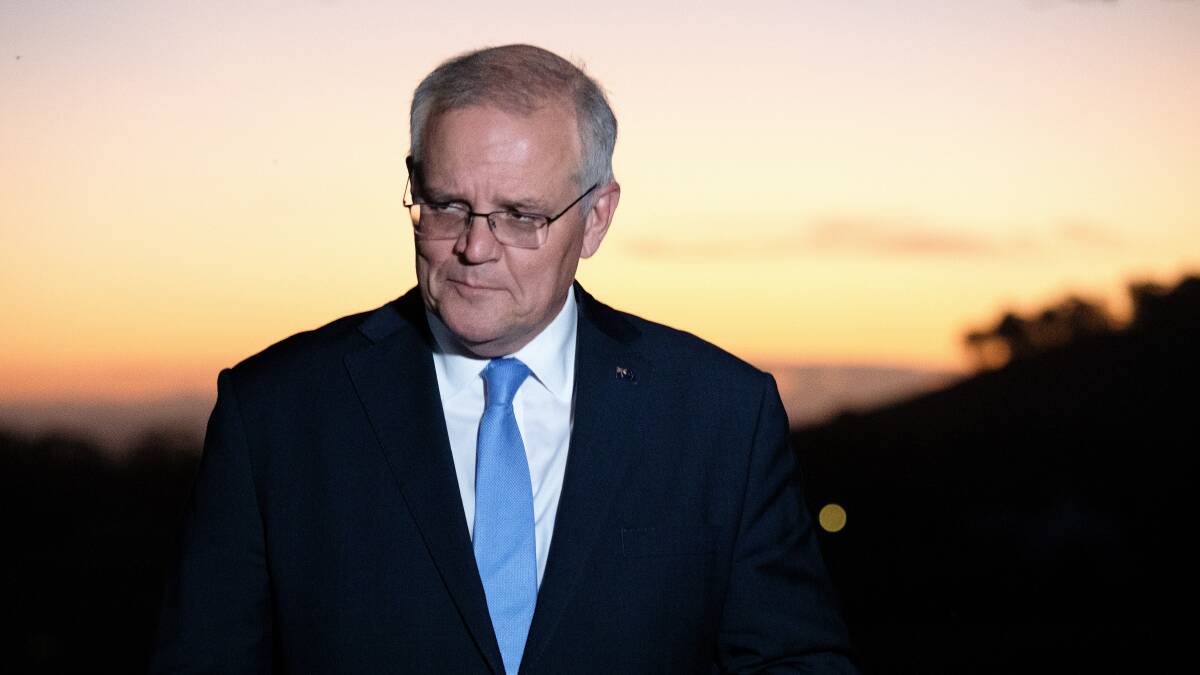It has been argued recently that the John Winston Howard era of Australian politics only properly ended with the extinguishment of the Morrison strain. Or perhaps you might prefer the Morrison stain, now that we've glimpsed its full messianic horror?
The argument goes that the conservatism exemplified by Howard had so lowered the nation's ambitions, that even after the digital age began transforming our news and politics, and even after Howard himself had exited, stage-right, political discourse conformed to elemental Howardism. This is most directly visible in asylum-seeker policy, but also in GST and other taxation, resources, strategic and foreign policy, and no-go areas like Australia Day and the republic.
Interestingly, given that the new Labor Prime Minister entered Parliament in the same 1996 election that saw Howard become PM, there's a sense in which even Anthony Albanese is a corollary of the push-and-pull forces Howard so cleverly marshalled.
That's quite some influence. Especially as its original aspirations seemed so essentially banal. But then, that was its point.
On the cusp of victory in 1996, Howard famously told the ABC's Liz Jackson that he hoped "by the year 2000" to see an Australian nation that was "comfortable and relaxed" about three things - its history, its present, and its future.
This was immediately ridiculed for its low wattage by all but the clear majority of Australian voters who rushed to give Howard a 20-seat majority and stuck with him for a dozen years.

Here, right at the start was Howard's prescription or what we might coin, his nostalgesia - sepia memories from a time before identity politics questioned the order of things, combined with the happy delusion that the analgesic of denial could dull modernity pains indefinitely.
After Paul Keating's globalisation lectures, his big-picture vision of an Australia "in Asia", and his confronting Redfern speech, Howard gave Australia permission to stop trying, to stop angsting.
Yes, there was a majority Labor government along the way, but Kevin Rudd's victory over the tiring Howard in 2007 was still in critical ways, fought on Howard's terrain. As well as modelling a suburban lay-preacher aesthetic, the churchy Rudd had to brazenly declare himself a greater fiscal conservative also. His electoral genius was to present not so much as a Labor reformer but as more of an updated Howard - a 2.0 version configured for climate change and the internet.
Why this focus on JWH?
Because, right on cue, as if flying in to liquidate the remaining assets of his now insolvent franchise, Howard was in the capital on Thursday admitting (albeit reluctantly) that his subsequent managers had botched things, drifted off-course, gone awry - the last one, terribly.
Appearing at the National Press Club, Howard was in sparkling form, reasoning and rejecting, cavilling and cajoling, as he spruiked his new book, A Sense of Balance.
Whatever else his critics might say of him, Howard still has more conservative vigour in his little finger than the dolts of Morrison's cabinet - a cast of mostly B-graders who sat clueless as the "loose unit" to whom they'd sworn loyalty quietly undermined them.
How must they now feel? They trusted him but he did not trust them - not as individual ministers of the Crown nor even as a conscientious cabinet unit, although the latter at least he could simply "bulldoze". How do we know? Because he said so. Explicitly.
Completely failing to justify his covert power grab, a biblically righteous Morrison actually admitted that it was specifically those ministers able to exercise powers without cabinet approval, that he needed to shadow in case their decisions presented "some threat to the national interest as a result of unilateral action by an individual". Lest there be any confusion, the notional "individual" referred to here is either Josh Frydenberg, Morrison's treasurer and supposedly his closest, dearest friend, or Mathias Cormann (and his replacement Simon Birmigham), or his home affairs minister, Karen Andrews. Or even Christian Porter, who had first shown Morrison how to appoint himself with a simple letter.
This staggering admission will go down in infamy as among the most ill-judged and revealing remarks of any Australian leader. It establishes ipso facto that Morrison was neither temperamentally nor morally fit for high office.
READ MORE:
- The stench of Morrison's constitutional coup will linger until there's an investigation
- Morrison has failed the pub test dismally
- This is beyond contemptible, Morrison's conduct was abominable
- The Scott Morrison horror show has a way to run yet
- What does the future hold for a man who never considered legacy
This, we were told several times throughout his tenure by the people who had worked closest to him, yet his nave colleagues never flinched. Or was it that they just loved the chauffeur-driven limousines, the staff and status? Some patriots.
Pressed on the debacle, Howard admitted he would never have had himself sworn in as a "duplicate minister", would never have kept any ministerial appointment secret, and believed the Governor-General was justified in explaining that he expected all appointments would be advised to Parliament, as usual.
Howard's clarity is inversely proportional to the opaqueness of Morrison's conduct and to his supine cabinet's mediocrity once apprised of their leader's convention-breaking betrayal.
Yet in evidence that the 83-year-old Howard's sway has not completely abated, the Liberal elder also flagged some of the divisive arguments conservatives will use against the constitutional referendum over a Voice to Parliament.
It was a reminder of Howard's ideological blind-spots - most pointedly, the glaring inconsistency of owning and celebrating the great achievements of Western civilisation but carrying none of the responsibility for the atrocities on which those achievements were built, because, simply, we weren't there.
And it was a reminder too that Howardism hasn't ended yet.
- Mark Kenny is The Canberra Times' political analyst and a professor at the ANU's Australian Studies Institute. He is a director of the National Press Club and hosts the Democracy Sausage podcast.


